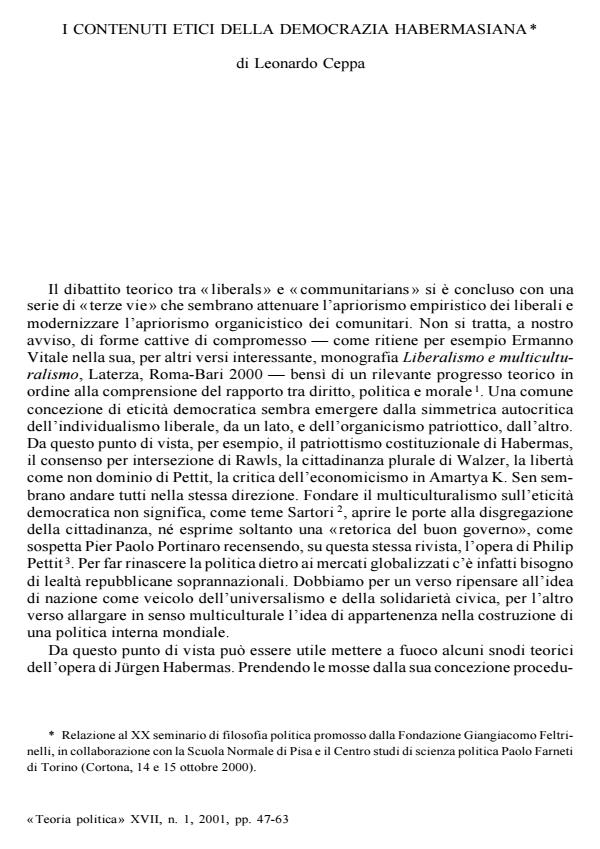I contenuti della democrazia habermasiana
Journal title TEORIA POLITICA
Author/s Leonardo Ceppa
Publishing Year 1 Issue 2001/1
Language Italian Pages 17 P. File size 51 KB
DOI
DOI is like a bar code for intellectual property: to have more infomation
click here
Below, you can see the article first page
If you want to buy this article in PDF format, you can do it, following the instructions to buy download credits

FrancoAngeli is member of Publishers International Linking Association, Inc (PILA), a not-for-profit association which run the CrossRef service enabling links to and from online scholarly content.
The essay focuses on the notion of democratic ethos by Jürgen Habermas. Taking the move from the tension between immanence and transcendence of democratic ethics, it illustrates the Habermas’ arguments about the risks implicit to the idea of collective rights, and about the decentrated, reactive and non-ethical qualities of cosmopolitan citizenship. The essay turns out in stressing some affinities and differences between the cosmopolitan democracy of Habermas and the law of peoples of John Rawls. Ceppa’s argument emphasizes two major points. In the first place, through the dialectic of contextuality and universality Habermas’ constitutional patriotism can, on the one hand, overcome liberal blindness towards ethical and cultural colours, and, on the other hand, disenchant the communitarian idea of total membership. Democracy needs solidarity, even though, on the historical level of modernity, this solidarity has universalistic and abstract qualities. Second, the efforts (for instance in John Rawls and Michael Walzer) to uncouple the idea of justice and legitimacy from western ideological perspectives can never go to the point of endangering the individualistic structure of positive law. Democratic ethos cannot go back and by-pass the principle of modern, subjective autonomy.
Leonardo Ceppa, I contenuti della democrazia habermasiana in "TEORIA POLITICA" 1/2001, pp , DOI: